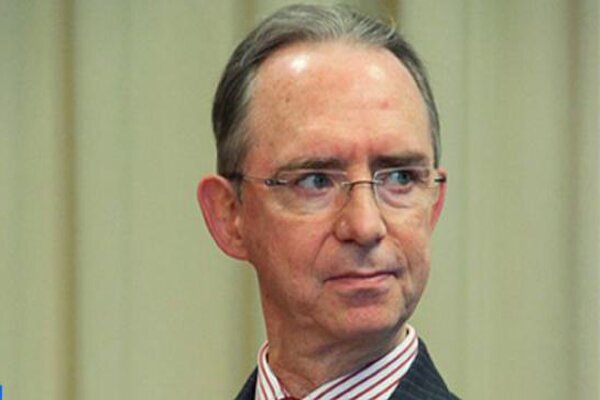
Iranian Foreign Ministry Spokesman Esmaeil Baghaei on Monday confirmed that the Director General of the International Atomic Energy Agency (IAEA) is scheduled to visit Iran for talks and consultations.
Following confirming his visit to Iran, we reached out to Marc Finaud a senior advisor and associate fellow at the Geneva Centre for Security Policy (GCSP) and former French diplomat.
Here is his interview with TABNAK:
Rafael Grossi, Director General of the International Atomic Energy Agency (IAEA), claimed in an interview with Bloomberg that "nothing but a name remains of the JCPOA." He added that he would "likely return to Tehran soon" for negotiations with Iranian officials. What is your assessment of his remarks and his upcoming trip to Iran?
It is true that, as president Biden said in January 2024, "the JCPOA is dead", considering the sunset clauses and the level of violation of its main provisions by Iran in response to the US withdrawal. That being said, Iran is still bound by its Safeguards Agreement and has not gone back on its pledge to implement the Additional Protocol. Grossi has been trying these past months to solve some disputes between Iran and the Agency about the fulfillment of its mandate to ensure that Iran's program remains peaceful. This will certainly be on top of the agenda of his talks in Tehran.
It appears that, from the IAEA’s perspective, cooperation between Iran and the agency is contingent on potential negotiations between Iran and the U.S. Meanwhile, the IAEA is set to release a comprehensive report on Iran’s nuclear program in the coming months. Could this report be published before any breakthrough in Iran-U.S. talks?
Of course, the two tracks (IAEA inspections and diplomatic taks about a post-JCPOA agreement) are related and mutually supportive. The Agency will continue to report on its inspections and findings and if those are critical of the Iranian performance, this may impact negatively the potential US-Iranian talks. But if, in the meantime, there is a breakthrough in those talks, the Agency will adjust its behavior to the new conditions.
The U.S. has stated that indirect negotiations with Iran are ongoing. At the same time, reports suggest that indirect talks between Iran and the U.S. will soon begin in the UAE. Can such indirect negotiations yield meaningful results?
This new development will be positive, especially if we refer to previous successful talks mediated by Oman. There is of course no guarantee of success, but it is clear that the Trump administration would prefer a bilateral deal that the US president could claim credit for. However, as usual, the devil is in the details and such negotiations would be really successful only if both sides gained substantial benefits and if confidence was restored that new restrictions on the Iranian nuclear program would be verifiably implemented along with the lifting of sanctions. A good benchmark would be to compare such an agreement with the one almost achieved at the Vienna talks under the EU's mediation.
Within Trump’s administration, two distinct perspectives on Iran’s nuclear program are evident. While Steve Witkoff, United States Special Envoy to the Middle East and Elon Musk adopt a more business-oriented and moderate stance, Marco Rubio, Secretary of State and Mike Waltz, National Security Advisor, hold a much harder line. What is your analysis?
There are indeed nuances and differences of focus between the Trump administration officials, but in the end, the president will decide and everyone will execute his decision. Ideological approaches may have to yield to trade and economic interests that could be positively affected by the lifting of sanctions.
U.S. President Donald Trump has stated, “We have told Iran that it must negotiate with us in any form necessary.” How do you interpret this statement? Could it imply that military action against Iran is being sidelined as an option?
As usual, Trump's statements often change and may create uncertainty, whether intended or not. He previously alluded to a potential military action from Israel, while giving preference to a diplomatic solution through direct or indirect negotiations. It seems to be a traditional combination of pressure and opportunity. Therefore, Iran cannot afford to miss such an opportunity if it appears serious.